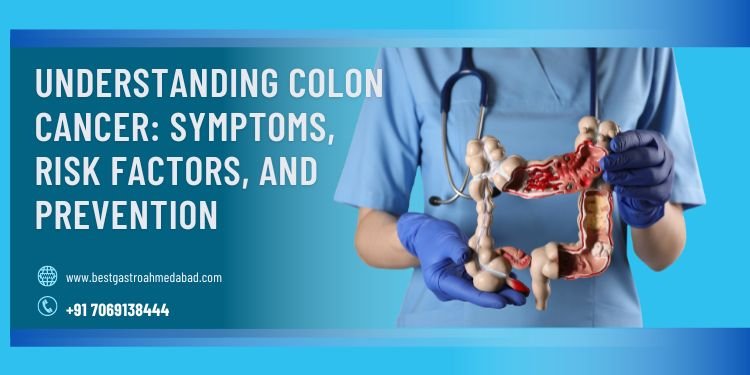Understanding Colon Cancer: Symptoms, Risk Factors, and Prevention

Colon cancer, also known as colorectal cancer, is one of the most common types of cancer worldwide. It originates in the colon or rectum, parts of the digestive system, and can significantly impact an individual’s health if not detected early.
What is Colon Cancer?
Colon cancer begins as benign polyps, small clumps of cells, on the inner lining of the colon. Over time, some of these polyps can turn cancerous. The progression from a benign polyp to cancer can take years, which is why regular screening is vital for early detection and treatment.
Symptoms of Colon Cancer
Colon cancer often starts silently, with no symptoms in its early stages. As the cancer progresses, symptoms may include:
- Changes in bowel habits: Persistent diarrhea, constipation, or a change in stool consistency.
- Rectal bleeding: Blood in the stool, which may appear bright red or dark.
- Abdominal discomfort: Cramping, gas, or pain that doesn’t go away.
- Weakness or fatigue: Persistent tiredness, which may indicate anemia caused by blood loss.
- Unexplained weight loss: Significant weight loss without trying.
Risk Factors
Several factors can increase the risk of developing colon cancer:
- Age: Risk increases with age, particularly after 50.
- Family history: A family history of colon cancer or polyps can increase risk.
- Personal history: Individuals with a history of inflammatory bowel diseases, such as Crohn’s disease or ulcerative colitis, have a higher risk.
- Diet: A diet high in red and processed meats can contribute to the risk
- Lifestyle factors: Lack of physical activity, obesity, smoking, and heavy alcohol use can also increase the risk.
- Genetic syndromes: Inherited conditions like Lynch syndrome and familial adenomatous polyposis (FAP) can significantly raise the risk.
Prevention and Screening
Prevention of colon cancer involves lifestyle changes and regular screening. Here are key strategies:
- Healthy Diet: Eating a diet rich in fruits, vegetables, and whole grains while reducing red and processed meat intake can lower risk.
- Regular Exercise: Engaging in physical activity regularly helps maintain a healthy weight and reduce cancer risk.
- Avoid Smoking and Limit Alcohol: Smoking cessation and moderate alcohol consumption are crucial in reducing cancer risk.
- Regular Screening: Screening can detect polyps before they turn cancerous.
The most common screening tests include:
Colonoscopy: A comprehensive exam allowing doctors to view the entire colon and remove polyps.
Fecal Occult Blood Test (FOBT): Detects hidden blood in the stool, an indicator of polyps or cancer.
Flexible Sigmoidoscopy: Examines the lower part of the colon and rectum.
Stool DNA Test: Identifies genetic changes in stool samples associated with colon cancer.
The Importance of Early Detection
Early detection through regular screening can significantly improve outcomes. When colon cancer is found early, it is more likely to be treated successfully. The survival rate for localized colon cancer is around 90%.
Colon cancer is a serious health concern, but with the right knowledge and proactive measures, it is preventable and treatable. If you experience any susch symptoms, consult healthcare professionals Dr. Vatsal Mehta one of the most experienced gastrologist imidietely. Early action and informed decisions are key to battling this disease effectively.
